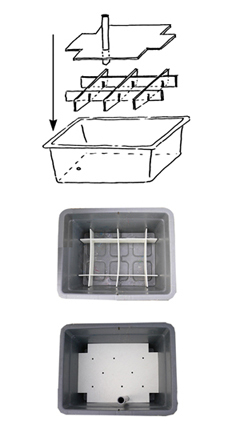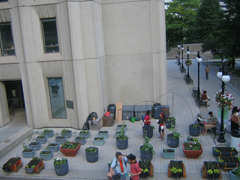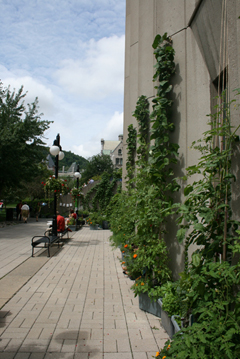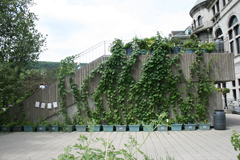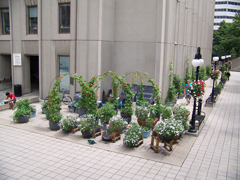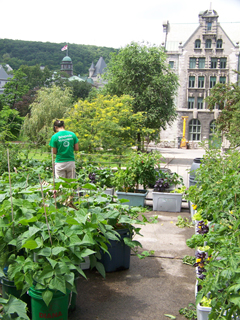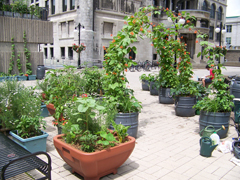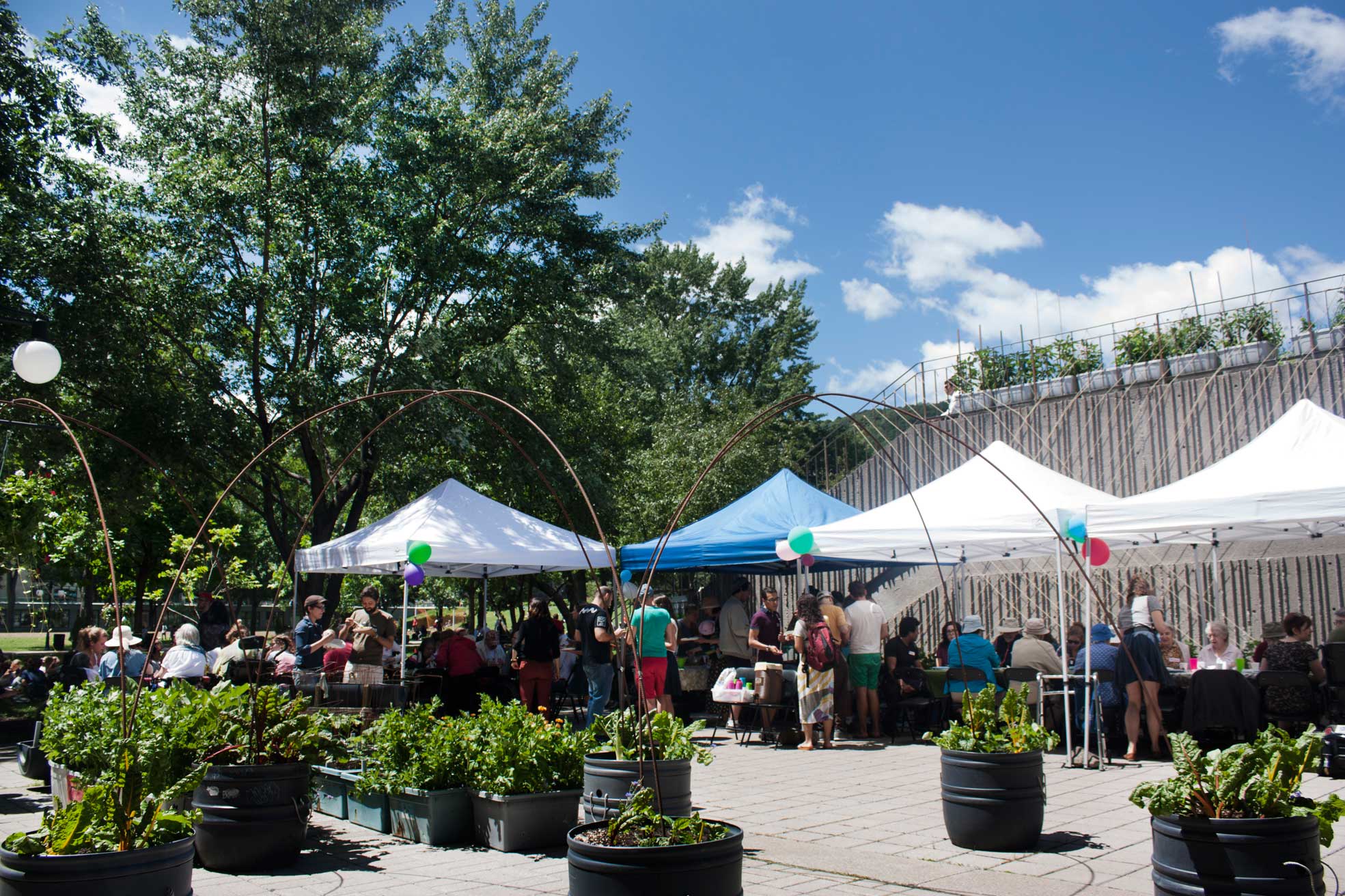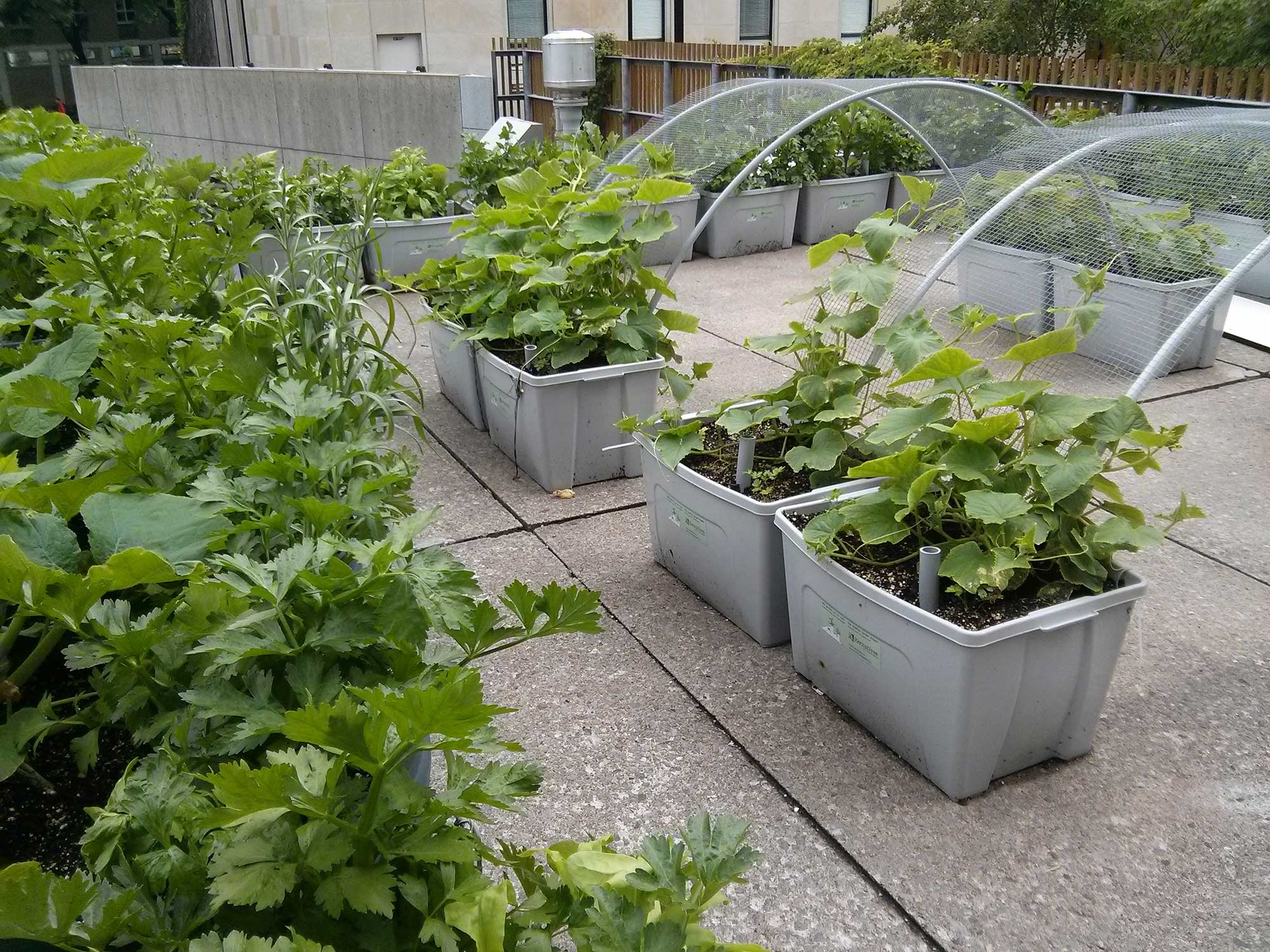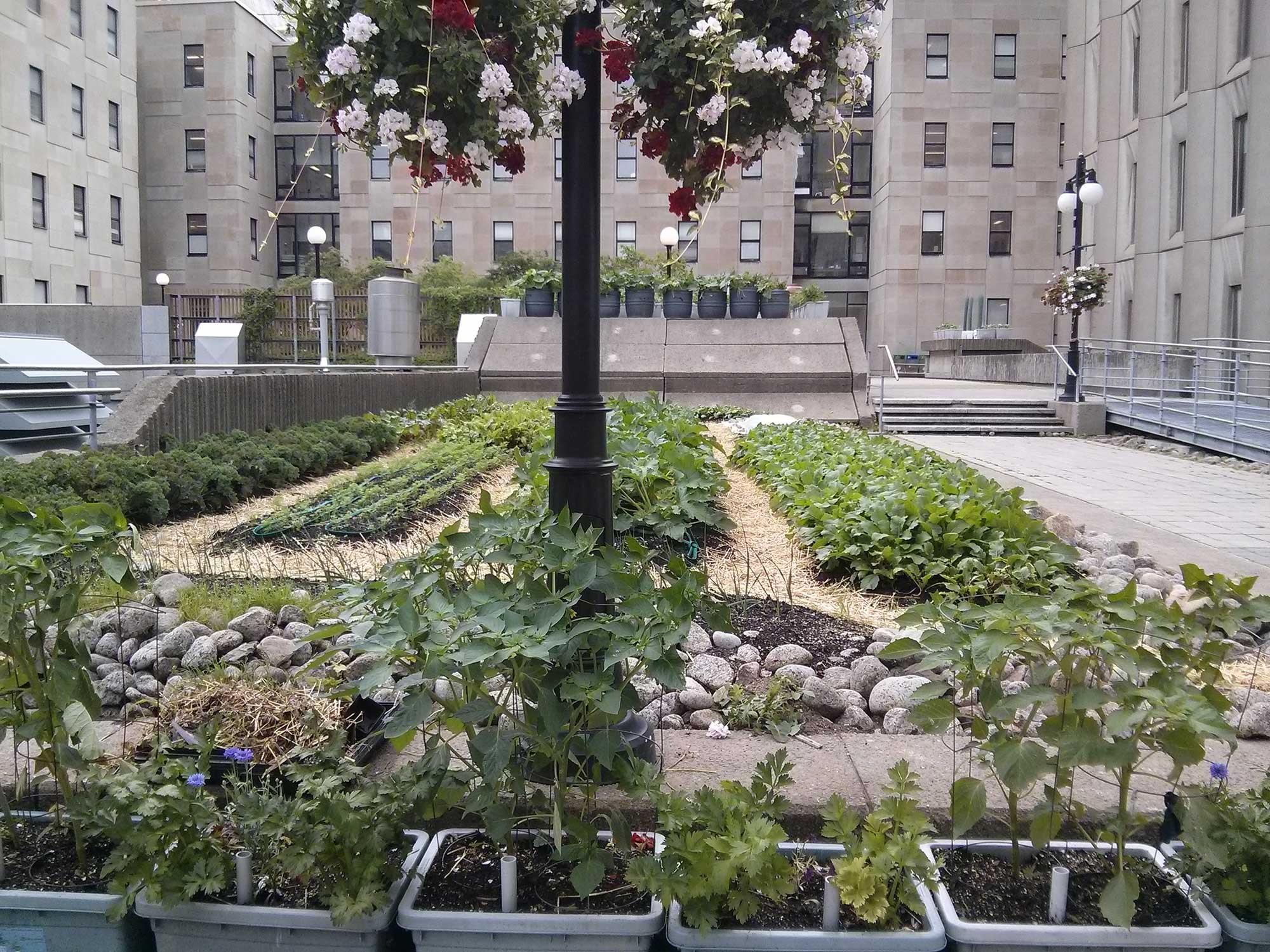Edible Campus, McGill University
Exhibit Category / Catégorie de l'expo: Community & Knowledge
Location/Emplacement: Montréal, QC, Canada
Dates: 2007 - present
Designers/Concepteurs: Minimum Cost Housing Group, McGill University
Local Partners: Santropol Roulant & Alternatives
Clients: McGill University
More Information/Plus d'informations: Edible Campus, McGill University
Image Credits/Crédits d'images: V. Bhatt, L. Farah, I. Hautecoeur, N. Luka, J. M. Wolfe, Luisa Ropelato, Minimum Cost Housing Group
Project Description: (version française ci-dessous)
The Edible Campus began in 2007 as a collaborative action-research project between the Minimum Cost Housing Group at McGill University and two non-profit organizations – Santropol Roulant and Alternatives. The team of academics and NGOs were looking for ways to grow food in the heart of the city through the cultivation of edible landscapes.
A shortage of community garden plots in Montreal highlighted the need for more growing space in the city, particularly the center. The research group realized that although urban land is extremely expensive, there are often “overlooked, underutilized, and neglected areas” just waiting to be used creatively. Hardscaping such as concrete and masonry plazas as well as walls and roofs are often the only available surfaces, as those found on the McGill campus, so the partners set out to use these resources.
Purpose-built planters were designed for hard surfaces and also devised for ease of watering through the introduction of a built-in reservoir. The planters could be moved indoors in the winter and plants could be started in the containers before the short Montreal growing season begins. By using small modular planters, the garden was replicable in both smaller and larger spaces.
Now in its fifth year, the project has expanded in each year of its operation. Involving a variety of citizens in the project was key to its success, recognized with a 2008 National Urban Design Award. Comments from the design jury indicated an appreciation for how the edible campus was “creating a sustainable prototype that could potentially be expanded to other university campuses and across the city.”
As the design jury predicted, other campuses are duplicating this success. In addition to its successful partnering between university groups and community organizations, the most significant lesson from the Edible Campus is its demonstration of the great potential of food production on neglected and underused spaces, including the most inhospitable of surfaces – concrete. This project thus offers strategies for decreasing the heat island effect caused by the hardscaped surfaces, while showing ways for gardening in the challenging spaces of the city, increasing access to healthy food and reducing food miles.
Browse for more projects in the Carrot City Index.
Description du Projet:
Le Campus comestible, à Montréal – Canada, a été lancé en 2007. Il s’agit d’un projet coopératif de recherche et d’action entre le Minimum Cost Housing Group (Groupe pour le logement à moindre coût) de l’Université McGill à Montréal et deux organismes à but non lucratif, Santropol Roulant et Alternatives, qui ont conçu de nouvelles techniques pour produire des aliments au centre-ville en cultivant des paysages comestibles.
Le manque de parcelles de jardins communautaires à Montréal mettait en évidence le besoin d’espaces supplémentaires pour cultiver en milieu urbain, en particulier dans le centre-ville. Le groupe de recherche a réalisé que, malgré le coût élevé des terrains urbains, des « espaces ignorés, sous-exploités et négligés » ne demandaient qu’à être employés de manière créative. Les espaces construits en maçonnerie ou en béton, les esplanades, murs et toits, tels que ceux du campus de l’Université McGill, sont souvent les seules surfaces libres ; les partenaires ont donc entrepris d’exploiter ces ressources.
Des jardinières spécialement conçues pour des surfaces dures, avec un réservoir intégré qui facilite l’irrigation, peuvent être transportées à l’intérieur pendant l’hiver et les plantations commencer avant la courte période de végétation à Montréal. L’utilisation de petites jardinières modulaires permet de reproduire le jardin dans des espaces plus ou moins grands.
Depuis 2007, les porteurs de projet n’ont cessé d’étendre leurs activités. L’engagement d’un grand nombre de citoyens a fortement contribué à la réussite du projet récompensé en 2008 par le Prix national du design urbain. Le jury a apprécié la façon dont le campus comestible « créait un prototype durable pouvant être étendu à d’autres campus universitaires et à travers la ville ».
D’autres campus sont en effet séduits par ce concept. Outre le partenariat prospère entre groupes universitaires et organisations de quartier, la principale réussite du campus comestible est de mettre en évidence le grand potentiel de production alimentaire que représentent les espaces urbains négligés et sous-exploités, y compris les surfaces en béton les plus inhospitalières. Ce projet propose des stratégies visant à diminuer l’effet d’ilots de chaleur urbains, lié en particulier au béton utilisé dans les constructions, et présente en même temps des façons de cultiver en ville qui facilitent l’accès à une alimentation saine et réduisent la distance du producteur au consommateur.
Trouvez d’autres projets avec l’Index de Carrot City.


